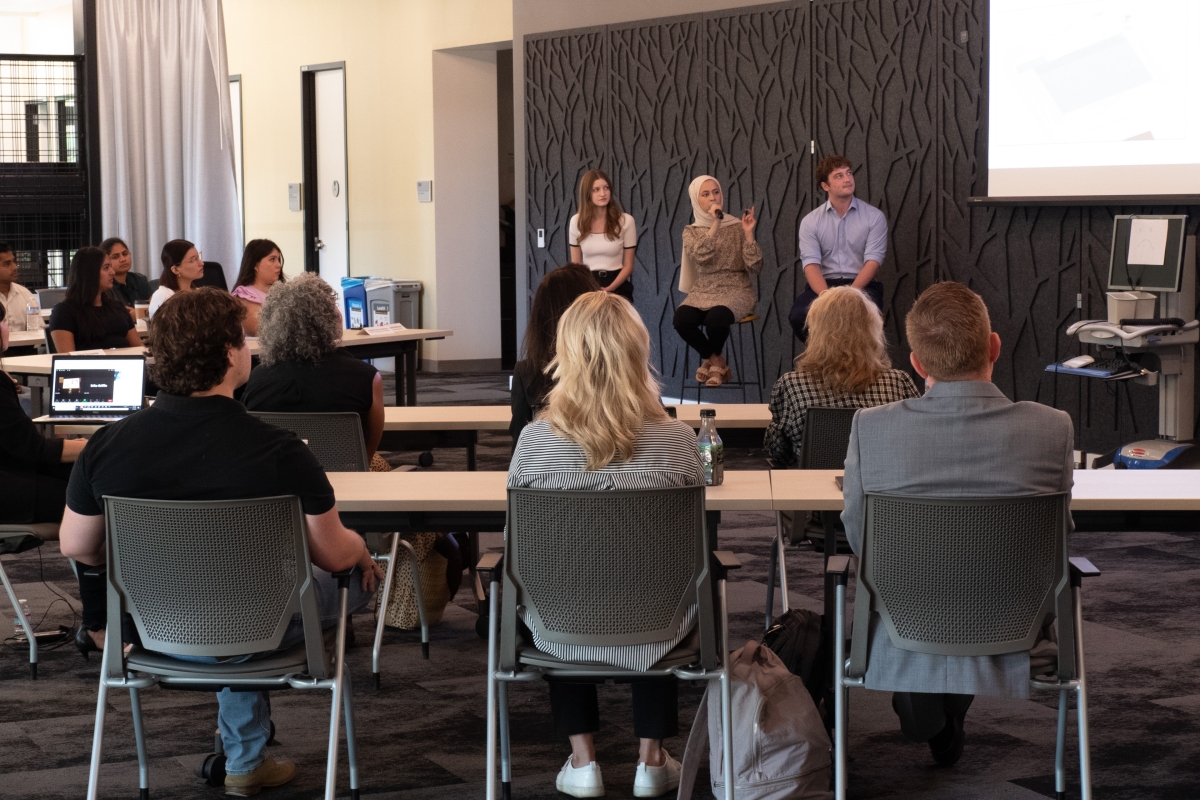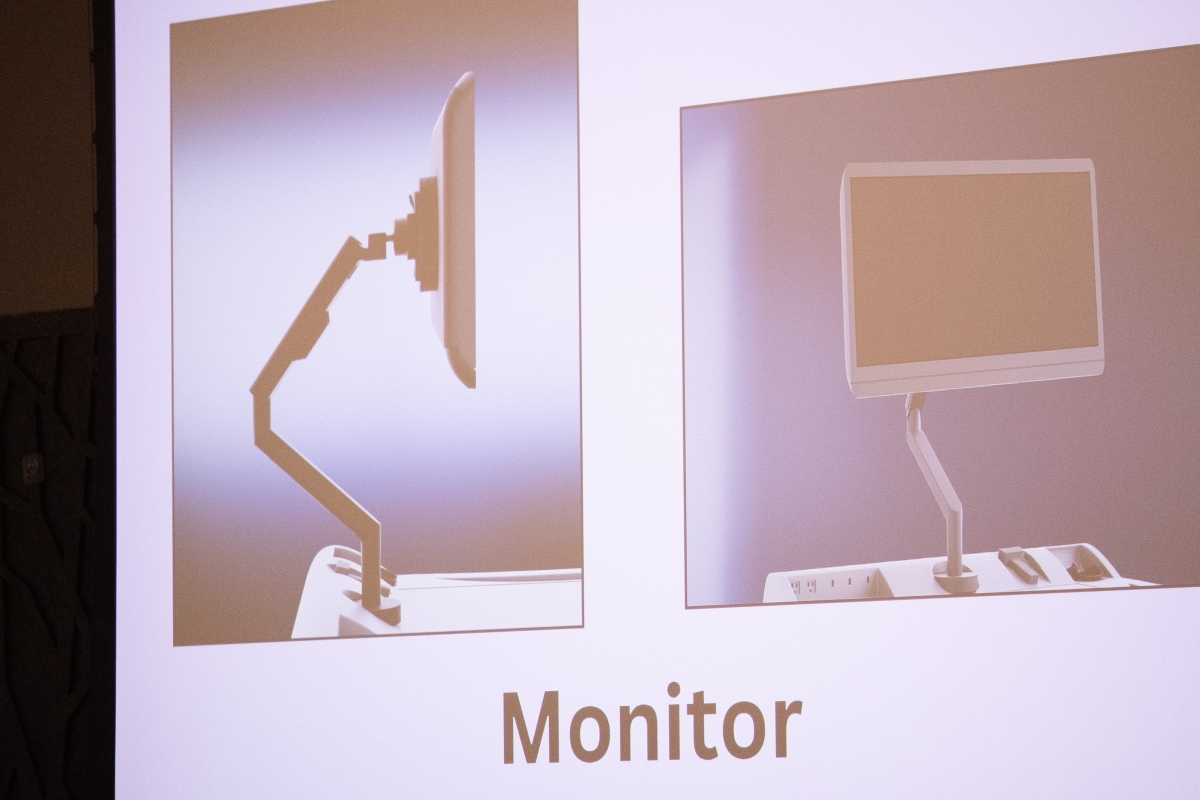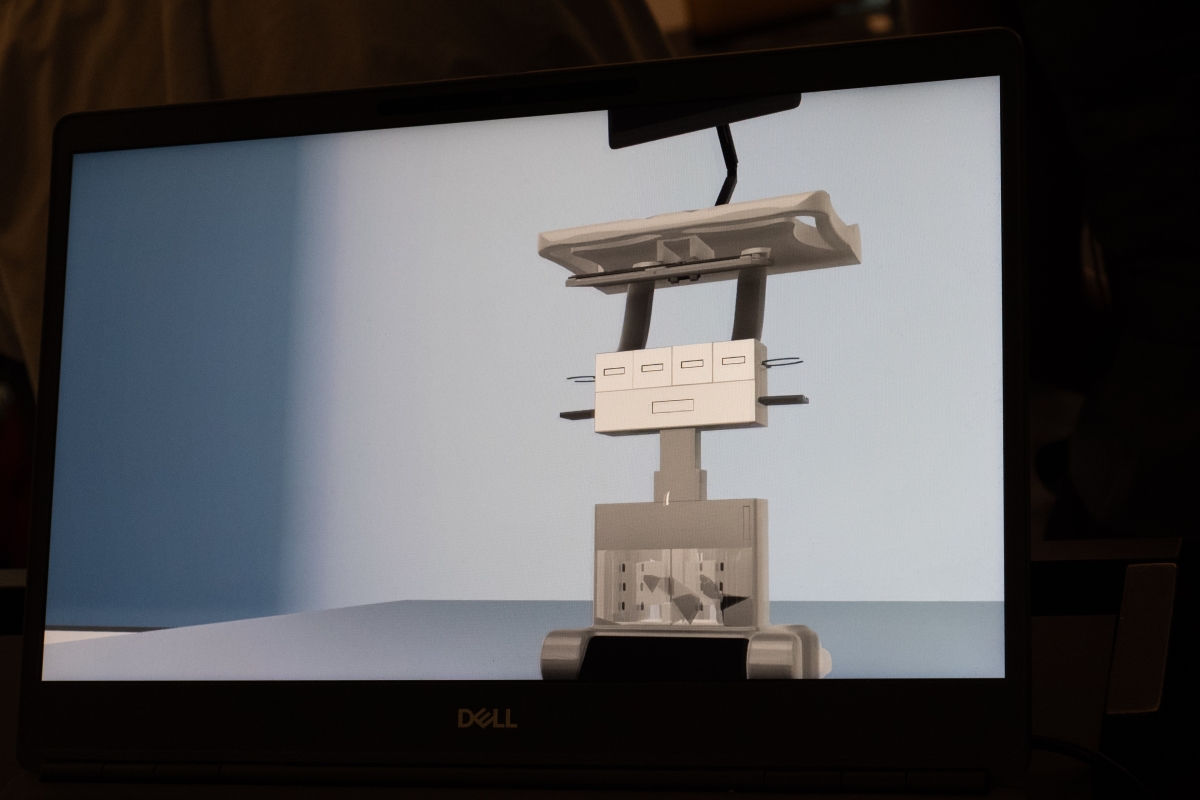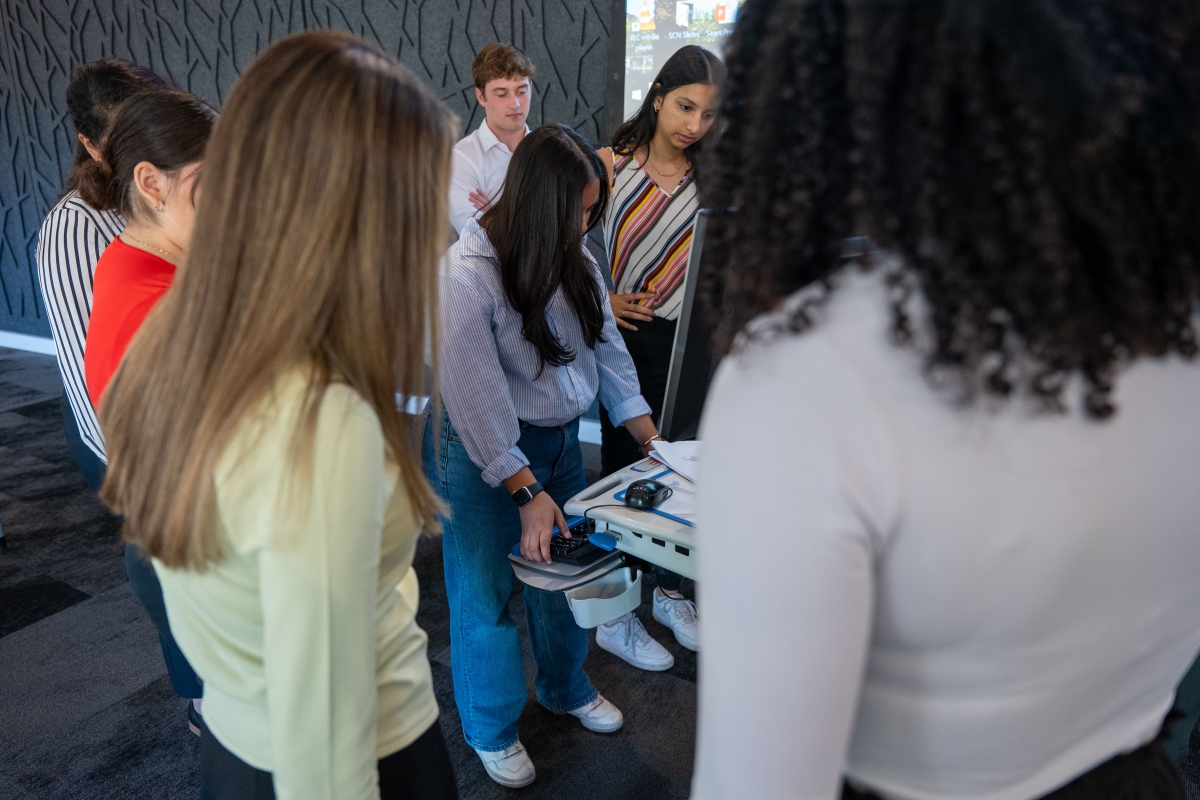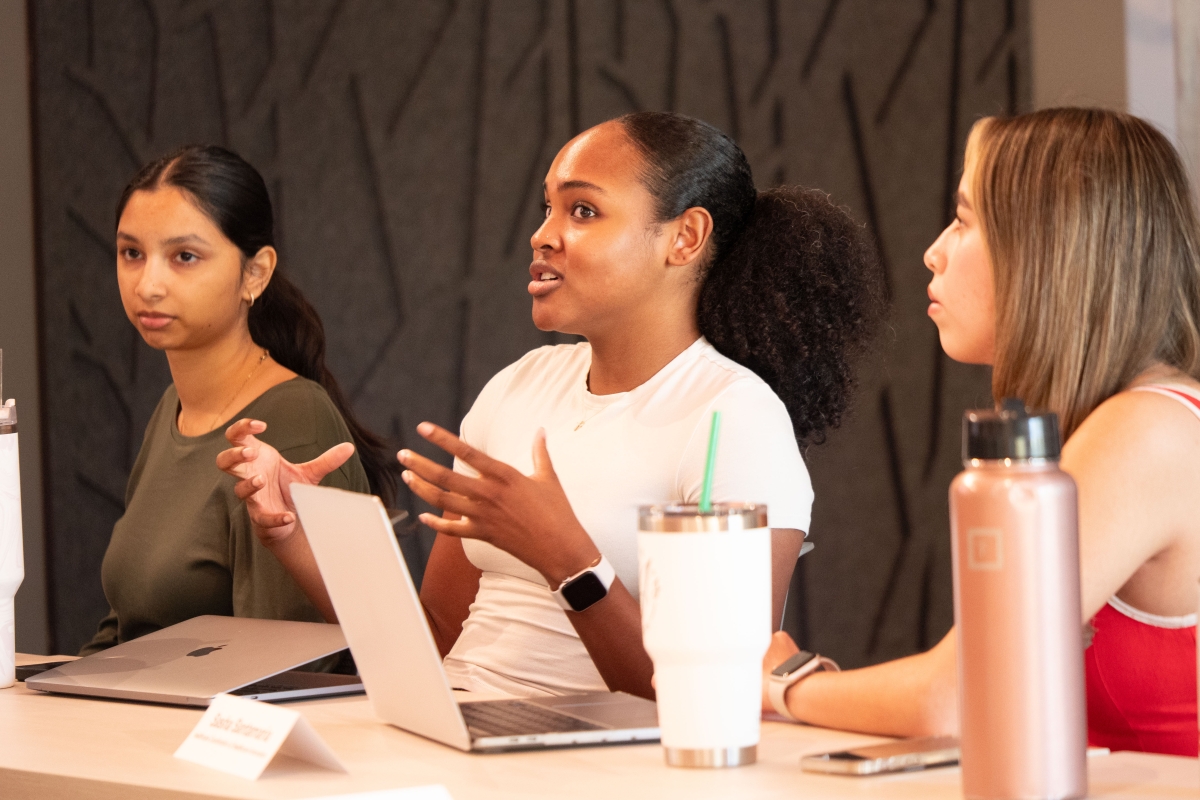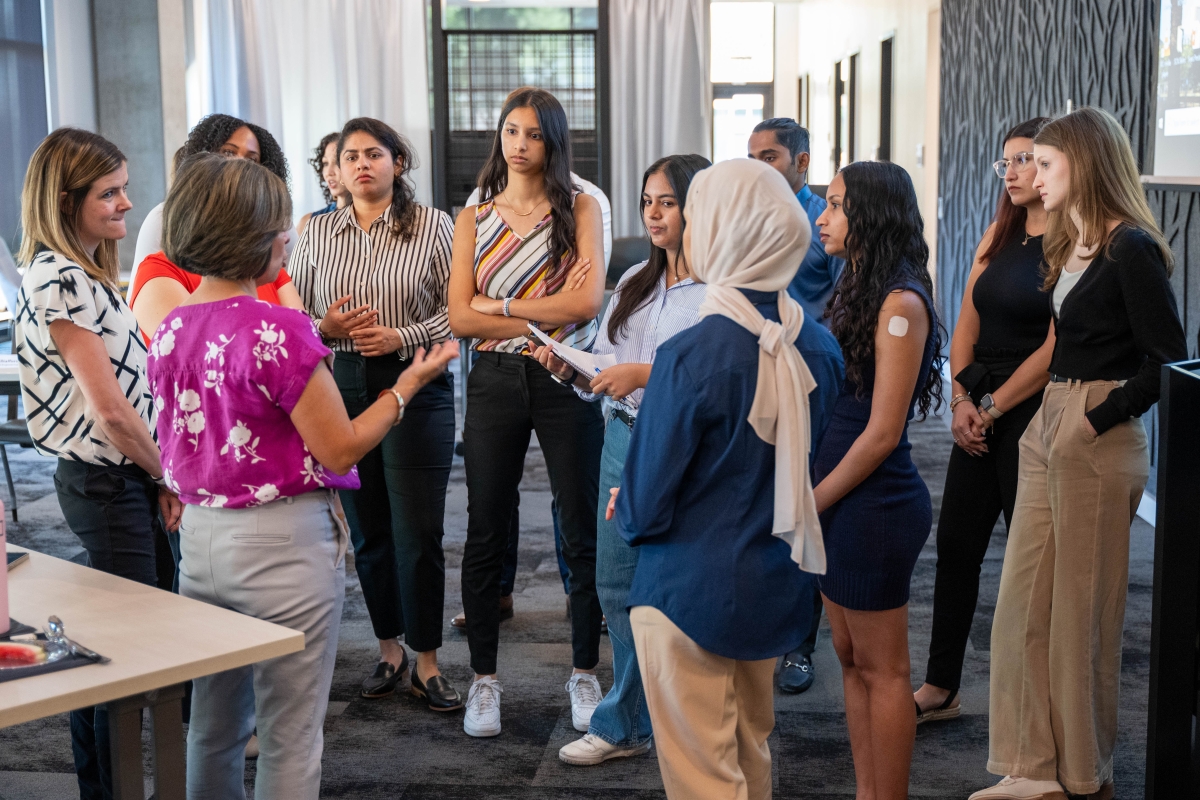ASU students redesign 'Workstation on Wheels' for HonorHealth nurses
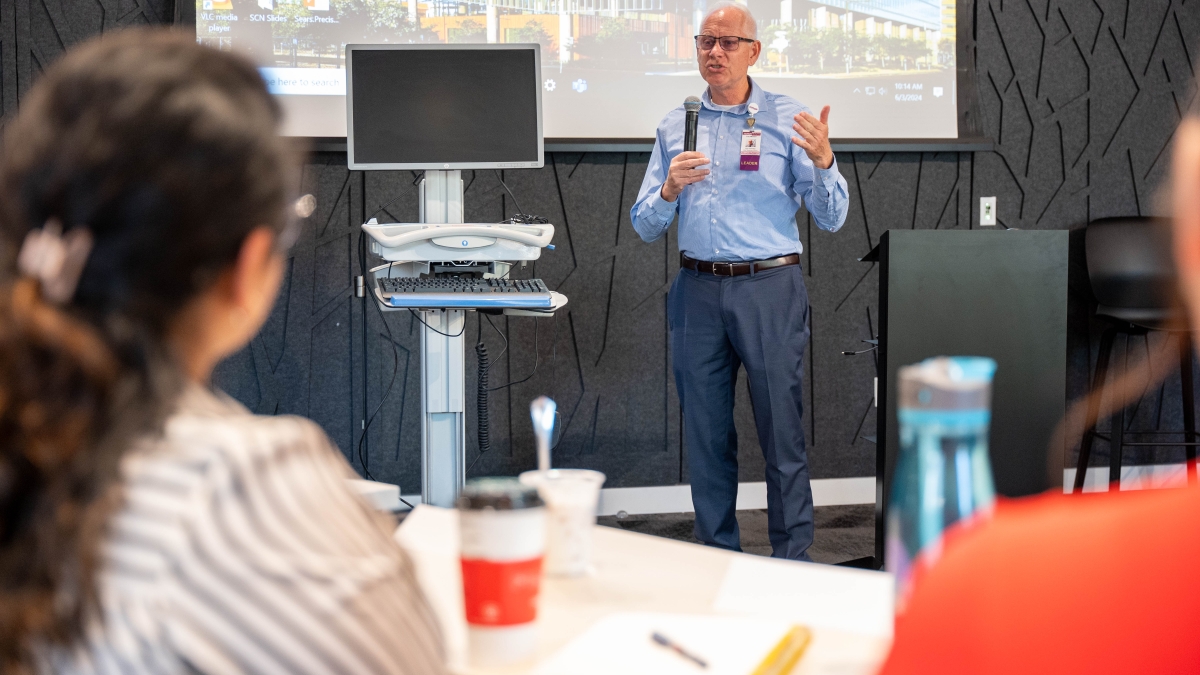
Nurse leaders from HonorHealth introduced the students to their internship project, which focused on redesigning the workstation on wheels seen in this photo. Photo courtesy Edson College of Nursing and Health Innovation
Going into this summer, Sheetal Jha, a biomedical engineering student, had specific expectations for the internship she would be participating in.
“I was looking to gain hands-on experience in product development and work on real-world projects and collaborate closely with professionals in the field,” she said.
Jha and 11 other students from around the university had those expectations met, and then some, through the Edson College of Nursing and Health Innovation’s Health Entrepreneurship Accelerator Lab, or HEALab, internship.
The group was selected out of more than 100 applicants for the program — now in its third year — to address an urgent need for one of the Valley’s largest health care organizations.
In partnership with HonorHealth, this year’s project focused on re-imagining the Workstation on Wheels, or WOW, cart for their nurses.
Nurse leaders from HonorHealth shared the limitations of the current carts with the students, describing them as “clunky” and unwieldy, making them hard for nurses to maneuver and lug around throughout their 10-to-12-hour shifts. On top of that, the carts are simply too big to fit in the rooms at HonorHealth’s newest facility, making a redesign a priority.
With only four weeks to tackle this problem, the students got right to it. They divvied up the work to play to their strengths. Being in different degree programs — including integrative health, biomedical engineering, health entrepreneurship and innovation, and human systems engineering, to name a few — was a major benefit.
“I worked closely with the HonorHealth team, focusing on user needs and ergonomic design. My role primarily involved concept generation and creating detailed visualizations for a medical device,” Jha said.
Meanwhile, Karanraj Govindraj, a second-year graduate student in industrial engineering, helped with ideation, designing various components of the cart using CAD software and conducting stress and structural analysis.
“The hands-on experience provided me with valuable insights into the challenges and intricacies of product design and development,” he said.
Throughout the process, the students had guidance from HEALab Director and Edson College Health Innovation Programs Senior Director Mike Collins, nurses and providers at HonorHealth, and others.
“We brought in local experts like Andrew Heuerman from The Patient Company to help get the interns started with designs and features needed. We had Vulcreate and Spline, two product development companies, come in and mentor the students and analyze different phases of their design. We also had a visit from Kate Vatt, who shared her knowledge of patents and IP protection with our interns,” Collins said.
Before long, it was time to share their final design with HonorHealth during a pitch-style presentation.
“I am very proud of the result. Not only did they create an amazing product, but they also bonded in friendship. In just four short weeks, 12 students who didn't know each other very well at the beginning of the internship worked together to share ideas, create designs and courageously pitch their innovation to HonorHealth leaders,” said Collins.
Zoraida Salas-Allison, clinical director of telemetry at HonorHealth’s Deer Valley Medical Center, said it was obvious how hard the students worked and how closely they paid attention to not just the barriers identified by the nursing staff but their wishlists as well.
“They took an outdated mobile cart and made it into a true workstation on wheels. I am confident that the innovative approaches and collaboration between the HonorHealth nurses and ASU students will have a lasting impact, and we look forward to our continued collaboration,” she said.
What comes next with the project is still to be determined, but everyone involved agrees this is only the beginning.
As for Jha, the internship exceeded her expectations. She was able to hone her technical skills and gain a deeper understanding of the collaborative nature of engineering projects and the importance of adaptability in a fast-paced environment.
“Not only did I learn key aspects of medical device design, but I also discovered something new about myself," she said. "I have a knack for quickly mastering new tools. I’m incredibly grateful for the opportunity to work on such meaningful projects and for the chance to grow both professionally and personally."
More Health and medicine

ASU, University of Wisconsin partner to empower Black people to quit smoking
Arizona State University faculty at the College of Health Solutions are teaming up with the University of Wisconsin to determine which treatments work best to empower Black people to quit…

New book highlights physician wellness, burnout solutions
Health care professionals dedicate their lives to helping others, but the personal toll of their work often remains hidden.A new book, "Physician Wellness and Resilience: Narrative Prompts to Address…

80 years of pioneering speech and hearing services for the community
Over 80 years ago, in 1937, the first course in communication disorders, Speech Correction, was offered at Arizona State University. As additional courses were added and programs in speech…
